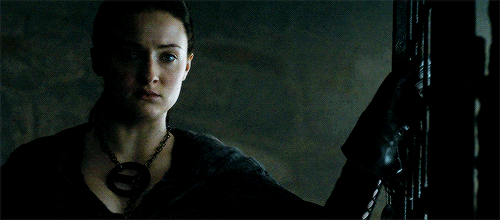 There has been a lot of digital ink spilled over the way Game of Thrones portrays sexual violence and women. This article is not specifically about that. In spite of being very into genre TV and pop culture in general, I don’t watch GoT. I’m just maxed out on rape, violence, and objectification content right now. No matter how allegedly good it is, I know I will feel like garbage if I watch it. I just wish fans of the show were better at respecting why this is exhausting and threatening for many, even though it’s entertainment for them.
There has been a lot of digital ink spilled over the way Game of Thrones portrays sexual violence and women. This article is not specifically about that. In spite of being very into genre TV and pop culture in general, I don’t watch GoT. I’m just maxed out on rape, violence, and objectification content right now. No matter how allegedly good it is, I know I will feel like garbage if I watch it. I just wish fans of the show were better at respecting why this is exhausting and threatening for many, even though it’s entertainment for them.
I’ve always been a fan of The Mary Sue, and I’m proud of their decision, and the similar decisions other folks have made around television shows, movies and books that portray various kinds of trauma. The violence faced by many marginalized populations in this country is very real, and it only magnifies the more axes of oppression you inhabit. If we’re on guard, we’re judging unfairly, but if something ever happens to one of us, the questions start and end with our behavior, our clothing, our decisions. After living in this world all day every day, it’s hard to see it played back for dramatic effect, one more plot point on a storyboard. It’s hard to see our daily life as just another obstacle to overcome, or a well-timed setback to prime the ratings pump for sweeps. It’s hard to put ourselves through just one more instance of seeing this crap, even if this time it’s not real. It’s hard to see the entertainment value in demoralization and trauma.
This is why, no, I am not going to start watching Game of Thrones. I am not going to see The Girl with the Dragon Tattoo or read the Outlander books. It doesn’t matter how good the story is, how cool the special effects are, or even how much it supposedly supports my political ideals. We’re exhausted. We have to hear it from politicians, school administrators, university presidents, cops, and friends. We must be ever-vigilant, but not a buzzkill. If you bring up obvious egregious problems, you’re “playing the race card,” but if you dare to not be 100% compliant with an impossible standard of innocence, you had it coming and are treated like a perpetrator instead of a victim. If you ever discuss your life in matter-of-fact terms, you’re said to be throwing your “lifestyle” in everyone’s face.
Many people value entertainment for its escapist quality, especially genre entertainment. Unfortunately, some of us never seem to be able to escape. When your people aren’t represented unless they fit a very narrow stereotype, it reminds you what the industry we fund sees as your place. When your tragedy is played for laughs, background information, or a set piece, you’re reminded that you and your problems ain’t shit.
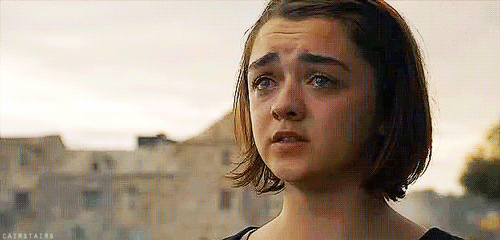
There’s a world of difference in how you experience pop culture representations of injustice and trauma when you are actually at risk or actively experiencing that form of trauma on a daily basis. I know a lot of people who opted not to watch Fruitvale Station or that episode of Scandal because they’re just too tired of that being their daily life. Many women who worked during the Mad Men era couldn’t bring themselves to watch the show because it brought back too many horrible memories. When we look at the number of trans women who have been killed so far in 2015 (half of whom are women of color), the number of people killed by police so far this year (again, mostly people of color), and the number of people who are sexually assaulted each year (once again, queer folks and people of color are bearing the heaviest burden), it’s impossible not to feel like trauma is everywhere. Even if you’re lucky enough not to be one of the people killed or assaulted, or one of their loved ones, there are still so many people living their daily life under threat of violence. Living in a world where they could easily be next.
Yes, sometimes these artistic representations can be beautiful and wonderful. They can illuminate some truth. They may alleviate some pain with camaraderie or by giving us the alternate ending we hope for (as with Scandal or Law & Order: SVU). But they can also fall woefully short, and they almost always do. They simplify our stories, make the perpetrators sympathetic, portray the victims as possible liars and schemers, assuage oppressor and bystander guilt, and fetishize the violence visited upon us. It’s lazy story writing, a reason for the hero to rise, or a demonstration of just exactly how evil the bad guy is. The trauma is never processed, the victim isn’t the focus, and systemic failures to prevent injustice or support victims are never addressed. The camera lingers in a way that questions whether we should be sickened or titillated. Victims are almost always to blame, and dangerously inaccurate or unfair tropes about what makes a person safe or innocent are strengthened. What is this really adding to our entertainment?
Even when fictional representations of very real traumas don’t fall short, they can still just be too damn much. I think we all have a limit on consuming media that kills us a little bit inside. It’s a very personal limit, and one that can change and is often influenced by other events in our lives like our mood, sleep deprivation level, or the persistence of current trauma in our everyday life. But that limit exists, and we should respect it.
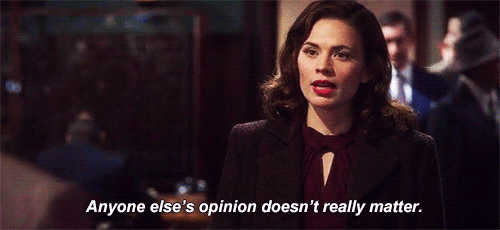
Sometimes, we just don’t have the time in our schedule to do the appropriate self-care and processing to make partaking worthwhile. Sometimes we are just done with the idea that our suffering can be considered entertainment, even if it is insightful or even life-changing for unaffected third parties. Sometimes we are just done.
No television show is worth trashing your mental health, even temporarily, no matter how good it is. And it’s about time everyone respect that, and respect that what is your entertainment is someone else’s daily hell.


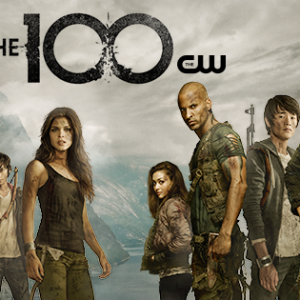

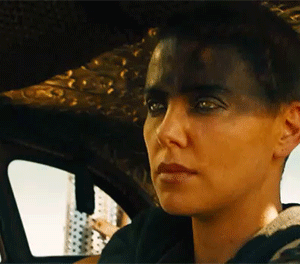
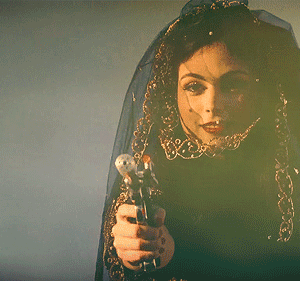
Leave a Reply